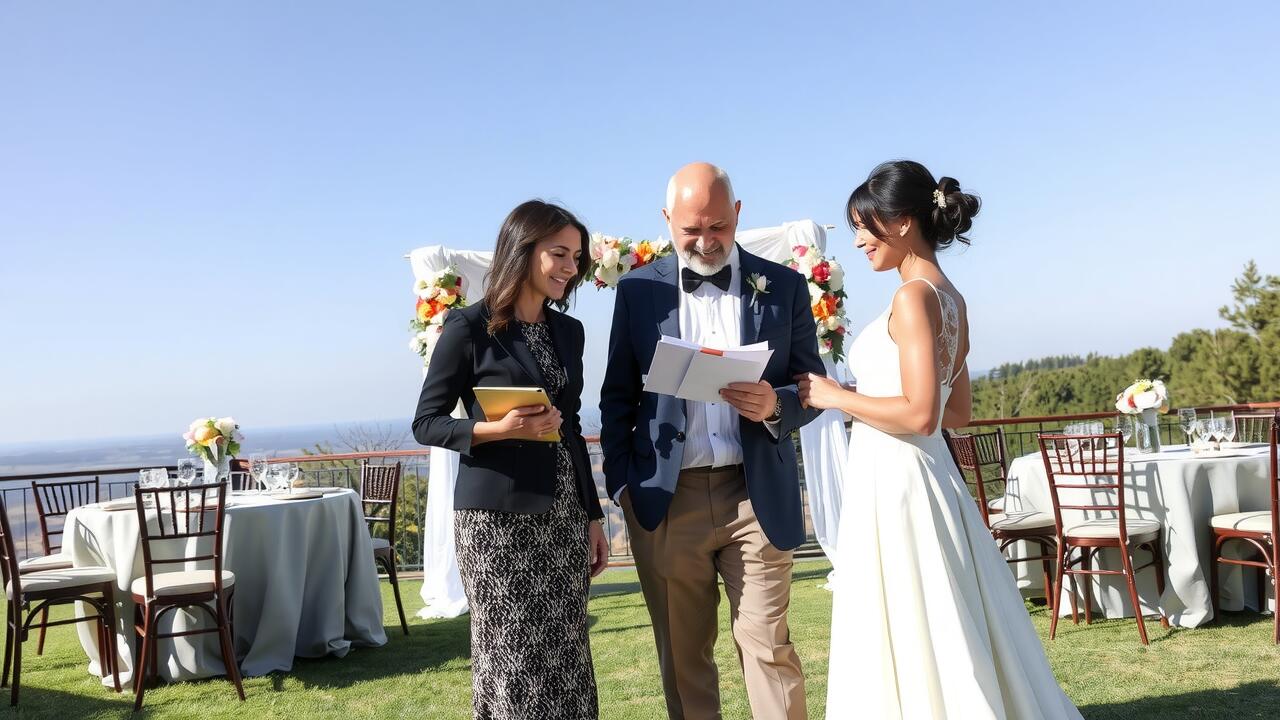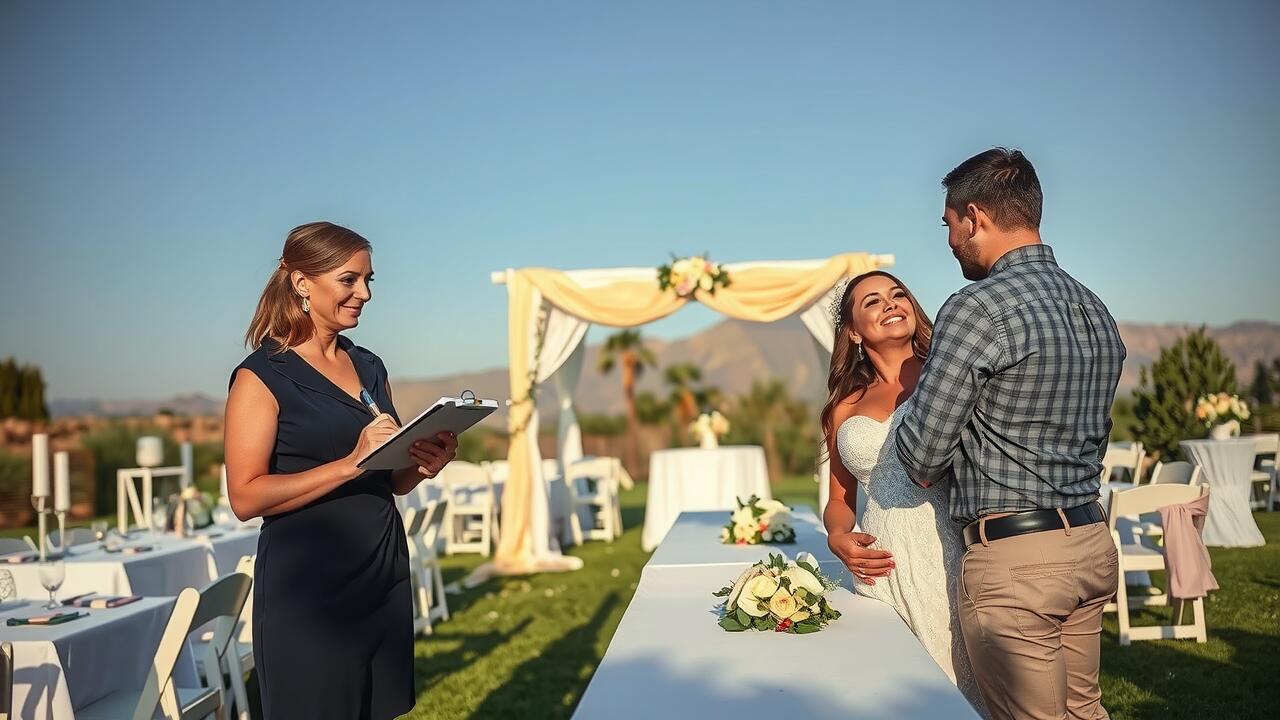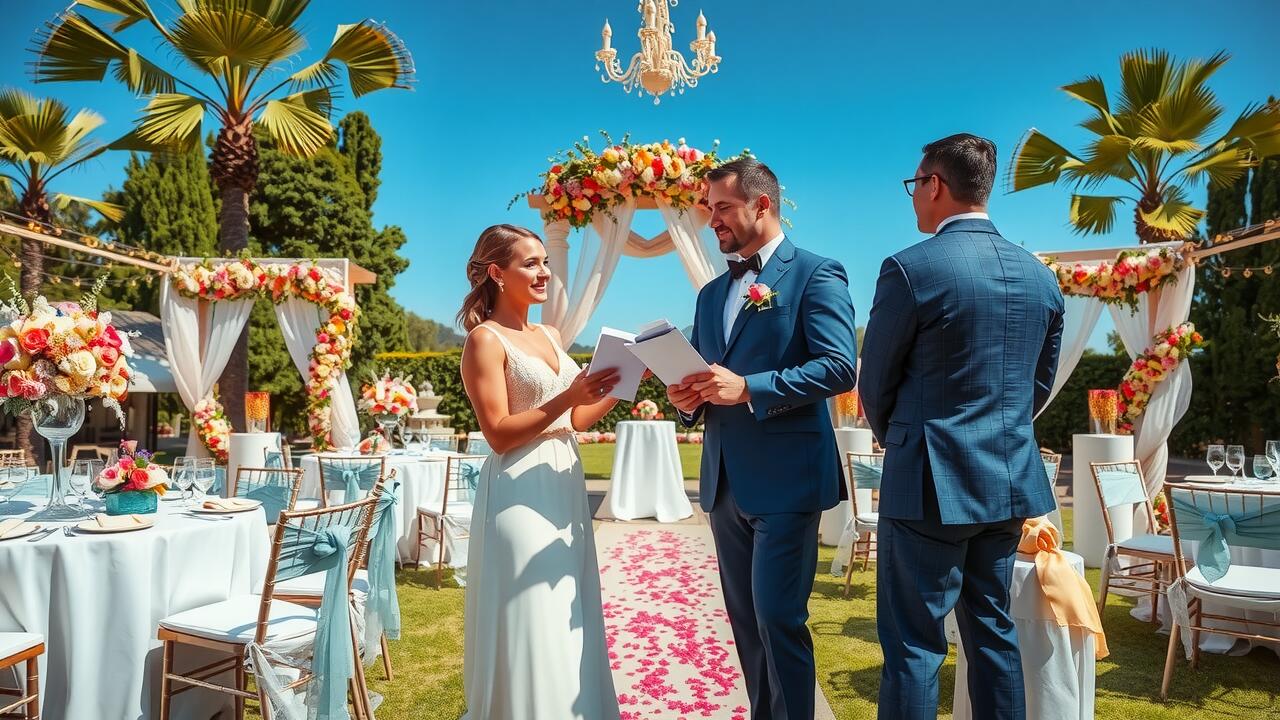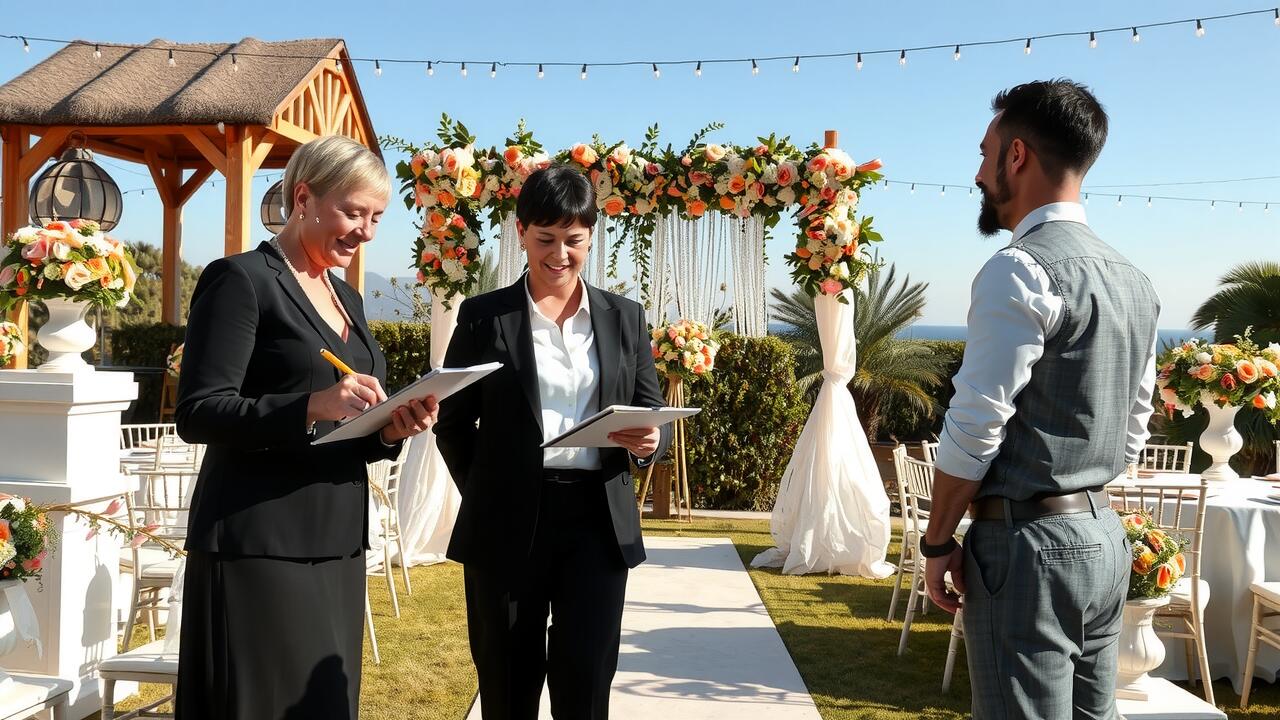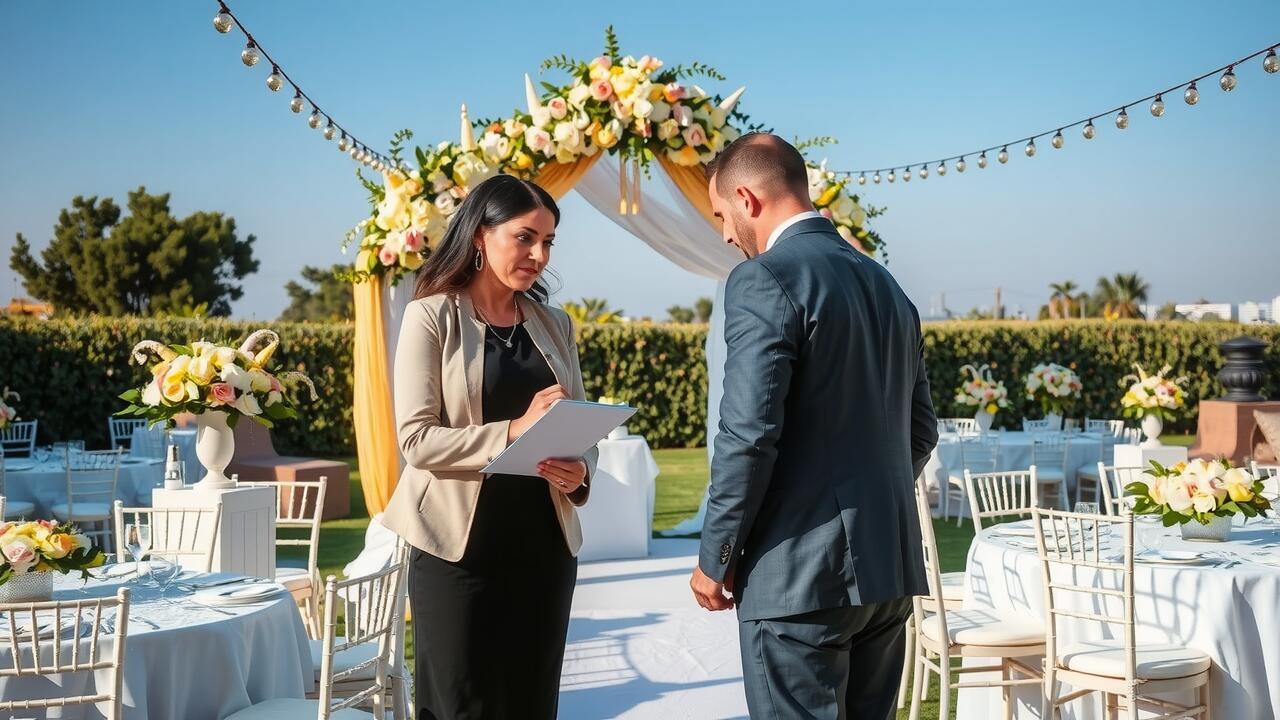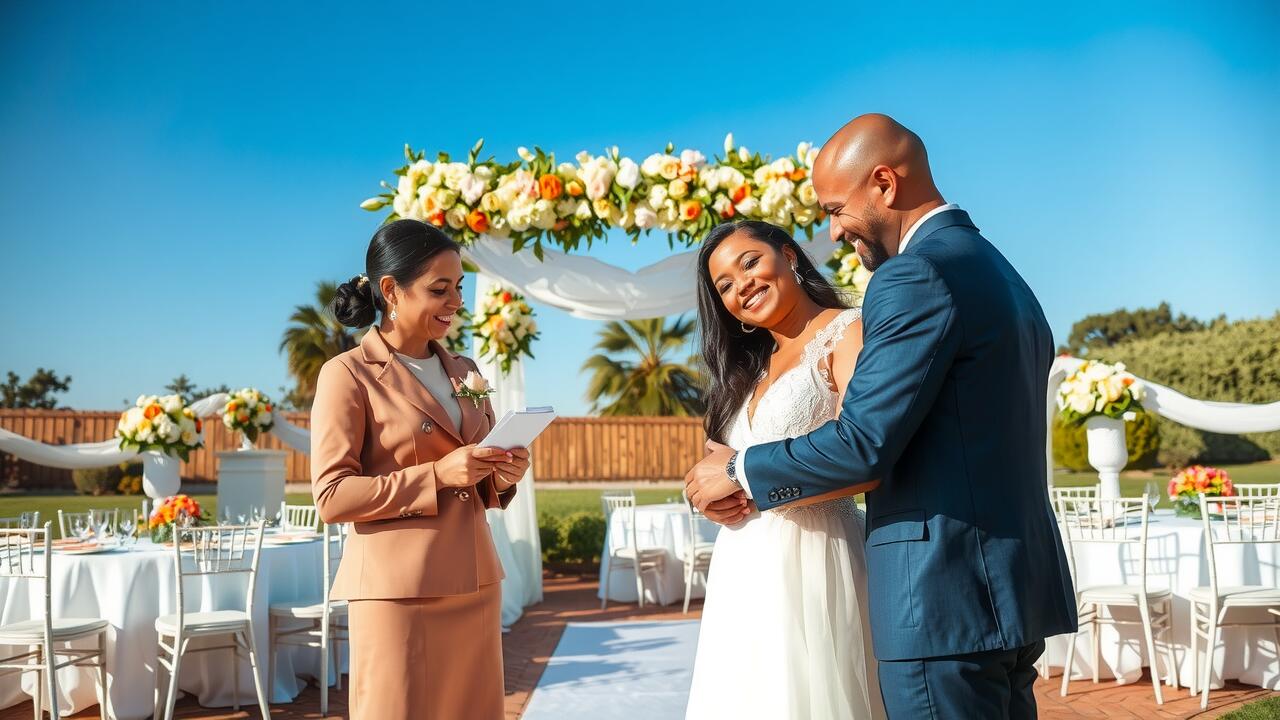
Overseeing the Reception Details
At the heart of Wedding Day Coordination lies the seamless management of all reception details. This involves confirming the layout of tables, ensuring that the decor aligns with the couple's vision, and checking that all elements are in their designated places. Staying organised contributes to maintaining the schedule and facilitates a smooth flow as guests arrive. Make sure to review the timeline closely and communicate promptly with the catering team, as timely service is crucial for guest satisfaction.
Another key aspect is liaising with vendors on-site. This includes the photographer, florist, and entertainment, among others. Effective communication helps mitigate any potential confusion during the event, ensuring that everyone is aligned with their responsibilities. During the reception, remain alert to any emerging needs or concerns. Quick adaptations to unforeseen changes will help maintain a joyful atmosphere and allow the couple to enjoy their special day without distractions.
Coordinating Seating and Layout
Coordinating seating and layout on the wedding day requires careful attention to the couple's preferences and the venue's constraints. Start by confirming the seating chart to ensure every guest is accounted for. It is essential to have a clear layout plan, including the placement of tables, chairs, and decor elements. This plan not only promotes smooth guest flow during the reception but also enhances the overall ambience of the event. Wedding Day Coordination often necessitates a quick walkthrough of the venue to validate that everything aligns with the desired vision.
Be prepared for unexpected changes that might arise during the event. Sometimes, additional guests may arrive or a seating arrangement might need to be adjusted due to unforeseen circumstances. Have extra chairs available and maintain flexibility within the seating plan to accommodate any last-minute needs. Maintaining effective communication with the catering team, venue staff, and wedding party can facilitate a seamless transition if adjustments are needed. Prioritising guest comfort ensures that everyone enjoys their experience, making careful coordination all the more vital on this special day.
Handling Last-Minute Changes
Last-minute changes can often arise during the bustling moments of a wedding day. Therefore, having a plan in place for handling these surprises is essential. Keeping a detailed checklist is a valuable strategy. This list should outline potential scenarios and their solutions, enabling the coordinator to respond swiftly when faced with unexpected challenges. For instance, if an outdoor ceremony is threatened by rain, a quick assessment of an indoor alternative is crucial.
Keeping open lines of communication with vendors is another vital part of effective Wedding Day Coordination. Should a supplier be running late or a last-minute adjustment to flower arrangements be necessary, being able to reach out and discuss solutions can mitigate stress. Ensuring that all team members are aware of the communication protocol will help streamline the decision-making process. This proactive approach fosters a sense of calm and control, allowing the day to progress smoothly despite any unforeseen changes.
Strategies for Quick Problem Solving
Anticipating potential issues is a vital component of Wedding Day Coordination. By preparing a comprehensive checklist of common problems, coordinators can quickly address any situation that arises. This might include vendor delays, last-minute guest changes, or unforeseen weather conditions. Having contact numbers for all suppliers on hand ensures fast communication, allowing for smoother resolutions without disrupting the flow of the event.
Another effective strategy involves establishing a direct line of communication with the wedding party and key vendors. Designating specific points of contact can streamline decision-making processes during the day. For instance, if a last-minute adjustment is needed to the seating plan, quick consultations with the bridal party and caterers can facilitate a rapid response. Training assistants to handle minor issues gives the primary coordinator the bandwidth to focus on larger-scale concerns, reinforcing the overall efficiency of the wedding day.
Managing Guest Needs
Ensuring guest comfort and satisfaction is a pivotal aspect of Wedding Day Coordination. Anticipate the needs of guests by providing clear signage to guide them throughout the venue. Ensure restrooms are easily accessible and stocked with essentials. Consider creating a welcome area where guests can find information about the day's events, as well as refreshments upon their arrival. This attention to detail will help set a positive tone for the festivities ahead.
Paying attention to dietary restrictions is another key element in managing guest needs. Confirm menu details with the caterer ahead of time and ensure that alternative options are available for guests with specific requirements. Communication with the catering team on the day of the wedding is essential for addressing any last-minute changes. Additionally, appointing a designated person to attend to guest inquiries can alleviate stress and allow everyone to enjoy the celebration.
Ensuring Comfort and Satisfaction
Successful wedding day coordination emphasises guest comfort from the moment they arrive. Ensure ample seating is available in the reception area while maintaining a welcoming atmosphere. Create a designated area for guests to relax if they wish to step away from the festivities. Keep an eye on the temperature and adjust heating or cooling as needed. Additionally, providing refreshments upon arrival can set a positive tone.
Attending to dietary preferences and restrictions is crucial for satisfaction. Collect this information ahead of time and coordinate with catering services to address specific needs. Consider accessible options for those with mobility challenges. Thoughtful details, such as designated changing areas for parents and children or even a quiet space for nursing mothers, can enhance overall guest experience. A well-coordinated effort towards comfort will ultimately contribute to a joyful and memorable celebration.
FAQS
What should I do first when coordinating a wedding on the day of the event?
Begin by overseeing the reception details, ensuring that all elements are in place, such as decorations, seating arrangements, and catering setups.
How can I effectively manage the seating and layout for the reception?
Create a clear seating chart and layout plan beforehand, and ensure that staff and vendors are aware of their roles in setting up the space according to your plans.
What are some common last-minute changes that might occur on the wedding day?
Last-minute changes can include adjustments to the guest list, shifts in the schedule, or unexpected weather conditions affecting outdoor arrangements.
How should I handle unexpected problems that arise during the wedding?
Stay calm and use strategies for quick problem solving, such as prioritising issues, communicating clearly with your team, and having backup plans in place.
What can I do to ensure guests are comfortable and satisfied during the event?
Take the time to manage guest needs by checking in with them regularly, providing necessary amenities like seating and refreshments, and being attentive to any special requests or concerns.


